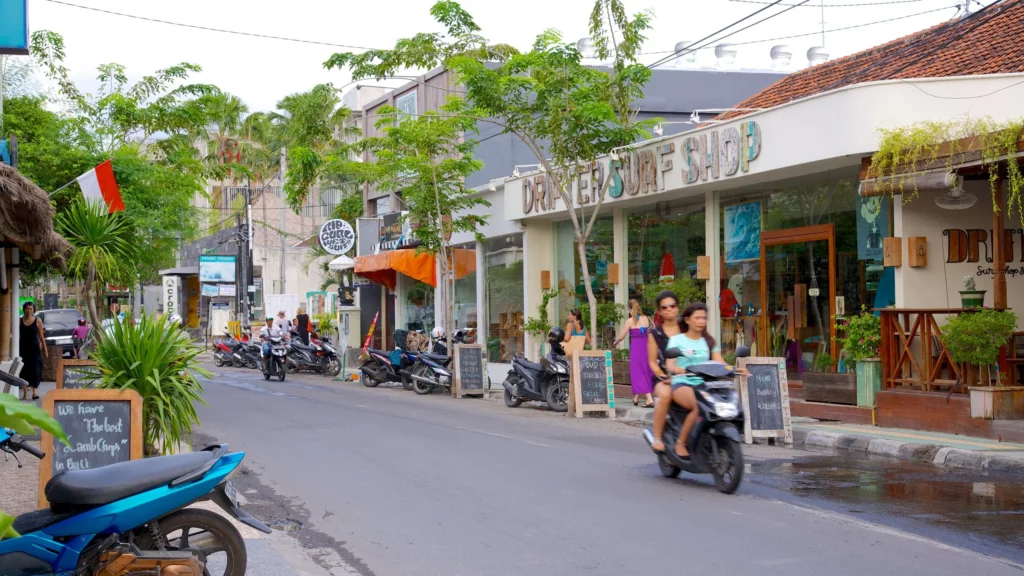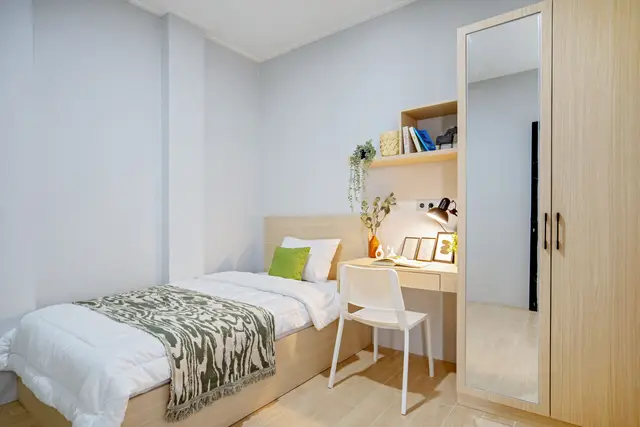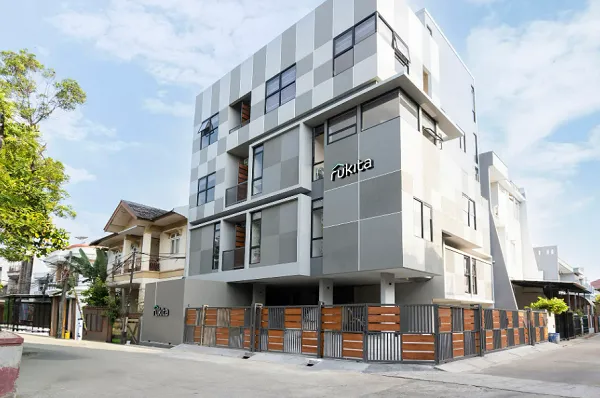Your Complete Guide to Life in Bali as an Expat

Thinking about starting a new life in Bali? Here’s what you should know.
Thinking about living in Bali as an expat? You’re definitely not alone. Known for its stunning beaches, friendly locals, and laid-back lifestyle, Bali has become one of the most popular destinations for expatriates from all over the world.
Whether you’re a remote worker, entrepreneur, or retiree, Bali offers a unique balance between tropical serenity and modern convenience. From vibrant expat communities to endless accommodation options, this guide will help you navigate life in Bali—from finding your new home to building a social circle and enjoying your everyday island routine.
Also Read: Bali Digital Nomad Visa: Complete Step-by-Step Application Guide
Life in Bali as an Expat

For many, Bali is not just a vacation spot, it’s a lifestyle. Expats are drawn to the island’s slower pace, natural beauty, and spiritual atmosphere. Areas like Canggu, Ubud, Seminyak, and Sanur have become expat hotspots, each with its own character.
Canggu, for instance, is famous for its surf scene, coworking spaces, and international cafés that make it perfect for digital nomads. Ubud offers a more spiritual and peaceful vibe, surrounded by rice terraces and yoga retreats. Meanwhile, Seminyak and Sanur are ideal if you prefer easy access to the beach, fine dining, and nightlife.
Despite the island charm, living in Bali as an expat also comes with challenges such as visa management, healthcare access, and infrastructure limitations in certain areas. Still, most expats agree that the lifestyle benefits far outweigh the inconveniences.
Finding Your Community in Bali as an Expat
One of the biggest reasons expats fall in love with Bali is the sense of community. The island is home to thousands of foreigners from all over the world—Australians, Europeans, Americans, and increasingly, digital nomads from across Asia. You’ll find expat-friendly hubs everywhere, but a few areas stand out:
1. Canggu

Canggu is the heart of Bali’s digital nomad culture. It’s where surfboards, coworking spaces, and smoothie bowls come together. Cafés like Dojo Bali and B Work Coworking are not just workspaces—they’re places where collaborations and friendships start.
2. Ubud

If you’re after something calmer, Ubud offers lush greenery, yoga studios, and wellness retreats. It’s perfect for expats seeking a slower pace or wanting to connect with like-minded people focused on health, mindfulness, and creativity.
3. Seminyak and Sanur

Seminyak is more upscale, with trendy restaurants, boutique stores, and modern villas. Sanur, on the other hand, attracts more retirees and families with its peaceful beaches and international schools.
Whichever area you choose, you’ll find expat communities through Facebook groups, coworking hubs, and social events. Popular spaces like Outpost, Tropical Nomad, and Genius Café also host community gatherings and networking sessions to help you meet new people.
Housing in Bali for Expats

Finding a place to live in Bali is easier than you might think, thanks to the island’s wide range of options. You can choose from luxurious villas, serviced apartments, or coliving spaces depending on your budget and lifestyle.
If you’re looking for flexibility and convenience, coliving spaces like Rukita are becoming increasingly popular among expats in Indonesia. Rukita offers fully furnished rooms with amenities like high-speed Wi-Fi, housekeeping, laundry services, and vibrant community spaces, all designed to make your transition smoother. For expats who are new to the country or work remotely, Rukita’s coliving options provide both comfort and connection.
Locations close to Bali’s main hubs like Canggu, Seminyak, and Denpasar are particularly ideal if you want easy access to cafés, coworking spaces, and beaches. Prices vary widely depending on location, size, and amenities, but it’s possible to find good-quality rooms ranging from around IDR 5 million to 15 million per month.
Unlike traditional rentals, Rukita’s flexible rental terms and community-based living concept help you skip the hassle of setting up utilities or managing maintenance on your own, so you can focus on settling into island life right away.
Building a Social Life in Bali

One of the biggest reasons expats fall in love with Bali is the sense of community. It’s incredibly easy to meet new people here, whether through coworking spaces, local meetups, or social gatherings.
In Canggu and Ubud especially, you’ll find many coworking spaces such as Dojo Bali or Outpost, where remote workers and entrepreneurs gather to collaborate, share ideas, and build friendships. Yoga studios and wellness retreats also serve as popular meeting spots for like-minded people seeking balance and mindfulness.
Beyond professional connections, Bali’s social scene is thriving. From sunset drinks by the beach to community events and charity runs, there’s always something happening. Many expats also connect through online forums and groups such as Bali Expats Forum and Bali Digital Nomads, where members share advice on visas, housing, and lifestyle.
But perhaps the most rewarding way to build a social life in Bali is by getting involved in local culture. Learning a few words of Bahasa Indonesia, joining traditional ceremonies, or supporting local businesses will help you feel more connected to the island and its people. Over time, what started as a short-term adventure can easily become a home away from home.
Cost of Living in Bali

Compared to major cities like Singapore or Sydney, living in Bali is relatively affordable—though prices can vary depending on lifestyle.
A single expat can live comfortably on around Rp15.000.000–Rp25.000.000 per month, covering rent, transportation, food, and leisure. Local meals cost as little as Rp20.000–Rp40.000, while dining in international restaurants ranges between Rp150.000–Rp400.000 per person.
If you shop at local markets and avoid imported goods, your grocery costs will be much lower. On the other hand, imported items such as wine, cheese, and cereals can be pricey due to import taxes.
Transportation is mostly done by scooter, the most convenient and affordable way to get around. Monthly scooter rentals cost around Rp1.000.000–Rp1.500.000, with fuel being cheap. Ride-hailing apps like Gojek and Grab are also reliable for short trips.
Tips for Living Comfortably in Bali

Living in Bali as an expat can be one of the most rewarding experiences of your life, but it also comes with a few adjustments. The island’s relaxed pace, cultural richness, and strong sense of community make it easy to fall in love with, yet understanding how to adapt is key to feeling truly at home. Here are some essential insights to help you settle in smoothly and make the most of your new life in paradise:
1. Learn to embrace local culture
The first step to living comfortably in Bali is embracing the local culture. Balinese people are known for their warmth and hospitality, and even learning a few basic phrases in Bahasa Indonesia can go a long way in building connections. A simple “Terima kasih” (thank you) or “Apa kabar?” (how are you?) can make daily interactions friendlier and show your respect for local customs.
You’ll quickly find that understanding cultural nuances like how to greet others politely or when to remove your shoes, helps you blend in and feel more comfortable. Many expats even take Bahasa Indonesia lessons to better navigate everything from market bargaining to community events.
2. Respect traditions and religious practices
Bali is deeply spiritual, with ceremonies and offerings forming a natural rhythm of daily life. You’ll often encounter processions, temple ceremonies, and small offerings on sidewalks or at doorways. Respecting these traditions isn’t just polite, it’s essential to being part of the community.
When visiting temples, dress modestly and cover your shoulders and knees. Avoid standing higher than priests or interrupting ceremonies, even for photos. These small gestures reflect your appreciation of local values and help you form a deeper connection with Balinese culture.
3. Stay healthy and adapt to the climate
Bali’s tropical climate is both beautiful and demanding. The heat and humidity can take some getting used to, especially if you’re new to Southeast Asia. Staying hydrated is crucial, always carry a water bottle and drink plenty throughout the day.
You’ll also find that eating local food helps your body adjust faster. Traditional dishes like nasi campur are not only delicious but also made with fresh, locally sourced ingredients. Be cautious about street food hygiene at first, and consider carrying mosquito repellent, especially during the rainy season.
If you plan to stay long-term, familiarize yourself with nearby clinics or hospitals. Areas like Canggu, Denpasar, and Ubud have reliable international clinics where doctors speak English.
4. Plan ahead with health and travel insurance
While Bali offers affordable medical care, emergencies can happen and costs can add up quickly for expats. Having comprehensive travel or health insurance that covers hospital care and evacuation is essential.
Many expats choose plans that include coverage in other countries like Singapore or Thailand, just in case advanced treatment is needed. If you’re employed by an international company, check whether your policy already includes Indonesia. For freelancers or entrepreneurs, numerous private insurance options are available online that cater specifically to expats in Southeast Asia.
Bali is more than just an island paradise, it’s a place where you can reinvent your lifestyle, find balance, and connect with a truly global community. With its combination of natural beauty, affordability, and sense of belonging, it’s no surprise that so many expats choose to call it home.
Whether you’re here for the waves, the wellness scene, or simply a slower pace of life, Bali has something for everyone. And if you’re looking for an easy way to settle in, Rukita’s co-living spaces across Indonesia offer comfortable, fully furnished rooms designed for modern professionals and expats, so you can focus on living, not just moving.
Want to find a comfortable, modern, and strategically located coliving space or apartment? Rukita offers various options you can rent to enjoy a more convenient and comfortable lifestyle.
Don’t forget to download Rukita app via Google Play Store or App Store or visit www.rukita.co. Follow Rukita’s Instagram account @rukita_indo, X account @rukita_id, and TikTok account @rukita_id to get the most recent information and other interesting deals!
Bagikan artikel ini

